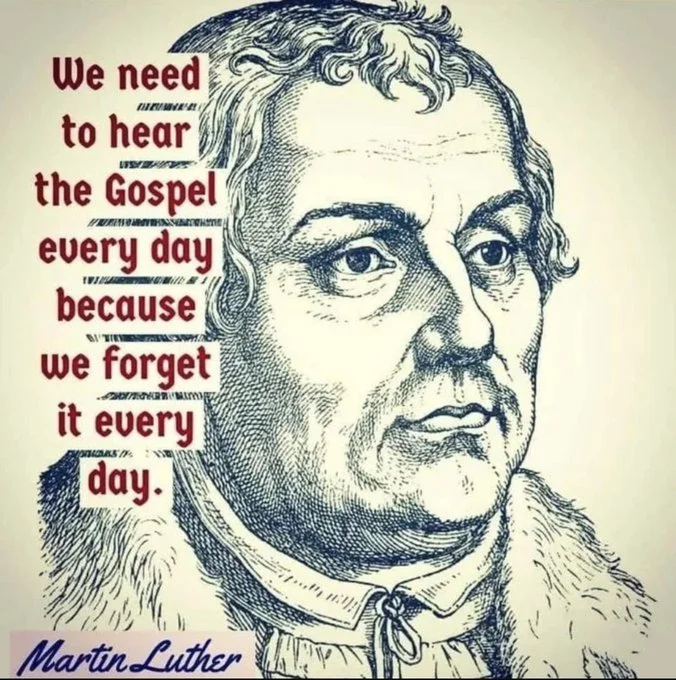Melanchthon's Treatise in the News
Dr. Jules Gomes
The online ecumenical Christian news aggregator, The Stream, ran an article by Jules Gomes, a Rome-based Vatican-accredited journalist and author (former Anglican priest and chaplain to Queen Elizabeth II, and now a Roman Catholic layman). Gomes has a PhD in Biblical Studies from Cambridge, and leans conservative. His July article mentions Pope Leo XIV, Leo’s ecumenical discussions with the Eastern Orthodox concerning the papacy, and a citation from Philip Melanchthon from the Treatise on the Power and Primacy of the Pope - as well as a response from one of the newly-ordained Lutheran pastors in Rome.
Just a couple days ago, Gomes tweeted a quote from Martin Luther in the form of a meme:
While the article, entitled “Pope Leo XIV Sweeps Aside Primacy of Rome in Call for Ecumenical Unity” is click-baity and overstated, it does raise some eyebrows concerning the new pope’s ecumenical and historical understanding of the See of Rome, as well as the current Roman Church’s “synodal” and ecumenical discussions about the nature of the papacy.
Gomes’s article mentions the Vatican’s document “The Bishop of Rome: Primacy and Synodality in Ecumenical Dialogues and Responses to the Encyclical Ut Unum Sint,” which admits to historical inconsistencies in papal dogma, and even cites Philip Melanchthon. The link in the article is dead, but you can download the document here.
Here is Gomes’s cite from our Lutheran pastor from Rome:
Lutheran Scholar Commends Pontiff
“Pope Leo’s comments have much that is commendable,” Fr. Lorenzo Murrone, co-pastor of Christus Victor Lutheran Church in Rome, told The Stream.
Murrone, a university lecturer in Latin and Greek and a scholar of patristic literature, elaborated: “Church historians are nowadays fairly unanimous in observing that the ancient Church was not gathered under one head but divided into individual dioceses. At an even earlier stage, congregations were led by local chapters of presbyteries, as seems to have been the case in Rome until the second century. In short, Leo’s analysis is fairly faithful to the apostolic structure.”
Murrone wondered if Leo’s words were a rhetorical flourish rather than a call to action. “Even so, I read these words with puzzlement,” he said. “How far is Leo willing — or able — to go? Trent and Vatican I seem to stand in the way: papal supremacy and infallibility are as indispensable to Roman Catholicism as repugnant to both Eastern Orthodoxy and Protestantism. Even if modern theologians can find more agreeable formulations of the issue, as long as the old conciliar definitions are a feasible description of Roman doctrine, the problem remains.
“Nevertheless, I harbor a fervent hope that the Lord Jesus Christ will do what we cannot and bring Christians from all sides to deeper mutual understanding and love.”
And here is Gomes’s reference to Melanchthon:
Pope Leo Builds on Trailblazing Inaugural Sermon
The document also favorably quotes two of the most important Lutheran doctrinal treatises on the Petrine office: Papacy: The Smalcald Articles and the Treatise on the Power and Primacy of the Pope. The authors cite Lutheran reformer Philip Melanchthon, stating that the pope’s “superiority over the bishops” could be granted iure humano (by human law) if the pope “would allow the Gospel.”
Leo’s speech to the ecumenical pilgrims follows his trailblazing inaugural papal address in which he pointed to Christ, rather than Peter, as the foundational “rock” of Christianity, using the term “sister Christian churches” to mark his desire for ecumenical unity, as The Stream reported earlier this year.



